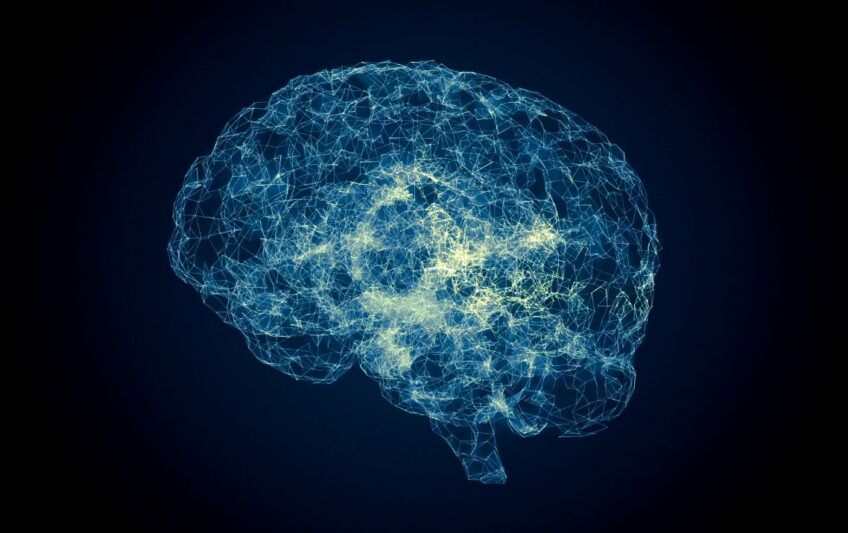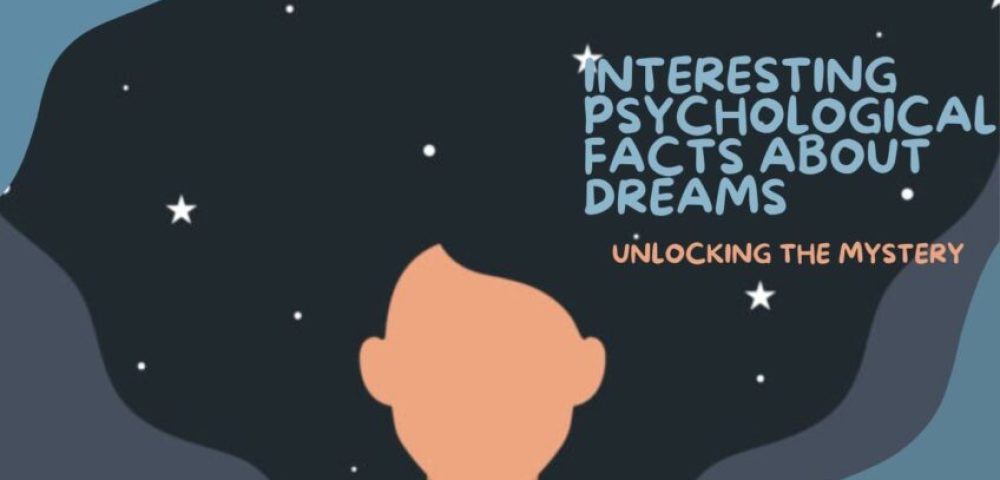Did you realize that your dreams are influenced by your day? One could contend that our dreams are reflections of our waking experiences and perhaps of anything else the subconscious has registered. Dreams are thus the aspect of human existence that we are unable to fully comprehend and control, which will keep us on our toes for years to come.
You may learn more about the symbolic significance of certain dreams, how they might influence our memories, and other fascinating information by reading on.
Page Contents
- 1 What Are Dreams?
- 2 Facts
- 2.1 1. You Can Dream In Black And White
- 2.2 2. Dreams Can Serve As Warning Signs
- 2.3 3. Your Gender Can Influence What You Dream About
- 2.4 4. Lucid Dreaming
- 2.5 5. Human History has Shifted Due to Dreams
- 2.6 6. Nocturnal Orgasms
- 2.7 7. Sleep Paralysis and Dreaming
- 2.8 8. Brain Activity
- 2.9 9. Creativity Flows in the Dream State
- 2.10 10. Carl Jung’s Thoughts
- 2.11 11. Euneirophrenia
- 2.12 12. Forgotten Dreams
- 3 What Do You Feel When You Dream?
- 4 The Psychology of Dreams
- 5 FAQ
- 5.1 What is the difference between a nightmare and a night terror?
- 5.2 Can certain foods or substances affect our dreams?
- 5.3 Are there any benefits to interpreting and analyzing our dreams?
- 5.4 How can I improve my dream recall?
- 5.5 Can dreams predict the future?
- 5.6 Are recurring dreams common, and what do they mean?
- 5.7 Can animals dream?
- 6 Conclusion
What Are Dreams?
Throughout history, people have been fascinated with dreams. The earliest records of dreams date back to 5000 years and are found on Mesopotamian clay tablets. Later records include Sigmund Freud’s “The Interpretation of Dreams” and Native American religious practices and beliefs that appear to be based on dreams.
Many cultures hold that our dreams have deeper meanings and can teach us things about reality, religion, and spirituality that our waking minds cannot. Our dreams are typically mostly visual, with little music or action. Similar to how it analyzes reality when we are awake, our brain perceives images in dreams.
There are numerous explanations for why we dream. Several ideas contend that dreams either represent our unconscious desires and needs or process our waking lives.
When Do We Have Dreams?
The REM phase of sleep, which typically lasts an hour, is when we frequently have our most vivid dreams. After falling asleep, the “Rapid Eye Movement” stage begins to take effect around 90 minutes later.
Facts

1. You Can Dream In Black And White
Some people only dream in black and white, while others only dream in color. The exception is made by those who frequently dream in color but occasionally do so in black and white. Dreaming in black and white typically refers to having an objective viewpoint without any emotional involvement.
2. Dreams Can Serve As Warning Signs
According to several studies, violent outbursts during REM sleep may be a precursor to neurodegenerative disorders. More than half of those who are diagnosed with REM sleep behavior disorder (RBD) go on to acquire mental and physical health problems like dementia and Parkinson’s disease, according to studies on the disorder conducted by the Mayo Clinic and Washington University School of Medicine.
The alpha-synuclein protein, which the brain releases while you dream, is the link between neurodegeneration and RBD. The protein can accumulate and cluster over time, harming the brain and ultimately resulting in neurodegenerative disease. That much information may have been difficult to process, but it illustrates the complexity of the mind and the influence of dreams on it.
3. Your Gender Can Influence What You Dream About
Men and women dream differently in certain ways. Usually speaking, women seem to have more personalities and more persistent dreams than males. Also, they have dreams involving depression and both male and female characters on an equal basis.
Males are more likely to dream about other men and themes like sexuality and physical violence.
4. Lucid Dreaming
Lucid dreaming, which usually occurs during the REM period of sleep, is the capacity to be awake while dreaming. The majority of people in the world have experienced lucid dreams, but they typically only happen a few times a year.
There are various strategies you can employ to obtain this sense of control over your dream world, according to some people who think you can learn to control your lucid dreams. There are several techniques you can employ to encourage more lucid dreams while you sleep.
Ways to gain consciousness and control in your dream state includes keeping a dream journal or repeating phrases like “I will have a lucid dream tonight,” or “I will realize patterns in my dreams and become conscious,” before bed-time.
5. Human History has Shifted Due to Dreams
You’ll learn that throughout human history, dreams have served as the inspiration for several scientific discoveries as well as artistic, musical, and linguistic accomplishments. Here are a few instances of dreams that had a significant influence on human history:
- Niels Bohr’s dream led him to discover the atomic structure.
- Mary Shelly’s “Frankenstein” was initiated from a vivid nightmare she had experienced and is now considered the world’s first science fiction novel.
- Albert Einstein discovered his principle of relativity through a vivid dream.
6. Nocturnal Orgasms

Wet dreams are a typical occurrence that can happen at any time in life, not just in adolescence, and they don’t just impact guys. Anyone of any age or gender can have an orgasm at night.
These wet dreams may be more common during adolescence and periods of abstinence, but there is little evidence linking them to erotic desires. Nonetheless, it is thought that your most intense sexual cravings might be revealed via wet dreams.
7. Sleep Paralysis and Dreaming
When you awaken while having a dream, you experience sleep paralysis. When we dream, our body are programmed to shut down, which causes our muscles to become immobile. Your body may still be in the dream phase even while your mind is awake; as a result, you remain cognizant but paralyzed, which is a highly frightening sensation.
8. Brain Activity

Brain activity and dreams are closely linked, as dreams are a result of brain activity during sleep. The brain’s activity during dreaming can provide insights into various aspects of human behavior and emotions.
Researchers have studied the relationship between brain activity and dreams to gain a better understanding of why we dream and what our dreams may mean.
Advances in neuroimaging technology have made it possible to study brain activity during dreams in greater detail, revealing fascinating insights into this mysterious and complex phenomenon.
9. Creativity Flows in the Dream State
The concept that dreams can stimulate creativity has been present for centuries. People from various cultures and eras have used dreams as sources of inspiration for their artistic and intellectual creations. While dreams are often regarded as trivial or meaningless, they can be a rich source of creative insight and problem-solving abilities.
Dreams are thought to tap into the unconscious mind, which is a source of creativity and insight. This is why many artists, writers, and musicians often report having dreams that inspire their work. The dream state is a time when the mind is free to explore and create without the constraints of reality or waking life. In this state, the mind can combine and recombine ideas in new and innovative ways.
One theory about why dreams can be so creative is that they allow us to access parts of our minds that are normally hidden from us. During the waking state, the conscious mind is in control, filtering and analyzing information from the outside world. However, during sleep, the unconscious mind takes over, and the conscious mind is less active. This allows for the free flow of thoughts and ideas that may not have been possible during waking hours.
Studies have also shown that the brain is highly active during the dream state. While we sleep, the brain goes through various stages of sleep, including rapid eye movement (REM) sleep. During REM sleep, the brain is highly active, and this is when we experience the most vivid and memorable dreams. Researchers have found that the brain is processing and integrating information during this time, which can lead to creative insights and problem-solving abilities.
10. Carl Jung’s Thoughts
Jung believed that dreams were an expression of the collective unconscious, a storehouse of shared human experiences and archetypes that we all have access to. He believed that dreams could reveal repressed emotions, desires, and fears, and that the symbols and imagery in dreams could be used to unlock the mysteries of the unconscious mind.
Jung also believed that dreams were a powerful tool for personal growth and transformation. He believed that through the process of analyzing dreams, individuals could gain a deeper understanding of themselves and their place in the world, and that dreams could be used to overcome psychological challenges and develop a more authentic and integrated sense of self.
11. Euneirophrenia
Euneirophrenia is a term coined by American psychologist Dr. Mark Blechner that refers to the feeling of contentment and well-being that comes from having pleasant dreams.
The word is derived from the Greek words euneiros, meaning “having good dreams,” and phrenia, meaning “state of mind.”
Euneirophrenia can have a positive effect on our overall mental health and well-being, and it is often associated with a good night’s sleep.
The experience of euneirophrenia can also inspire creativity and increase motivation.
While it is not always possible to control our dreams, there are certain practices we can adopt to increase the likelihood of having positive dream experiences.
These include maintaining a regular sleep schedule, reducing stress and anxiety, and engaging in relaxation techniques before bed.
12. Forgotten Dreams

Forgotten dreams are those that we cannot remember after waking up. It is normal to forget some dreams, but if you frequently have trouble remembering them, it could be due to a number of reasons.
The most common cause is not getting enough sleep, as dreams occur during the REM stage of sleep.
Stress, anxiety, medication, and alcohol or drug use can also affect dream recall.
Some techniques that may help improve dream recall include keeping a dream journal, practicing good sleep hygiene, and focusing on your dreams as soon as you wake up.
Remembering your dreams can help you better understand your thoughts, emotions, and subconscious desires.
What Do You Feel When You Dream?

When you dream, you may experience a range of emotions, just like you do in your waking life.
Some common emotions that people feel during dreams include happiness, joy, love, excitement, fear, sadness, anger, and confusion.
The emotions that you experience in your dreams can be influenced by a variety of factors, including your past experiences, your current state of mind, and the content of the dream itself.
It is also important to note that not everyone remembers their dreams or experiences emotions during them.
You Cannot Make New Faces in your Dreams
According to research, the brain is not capable of creating new faces in dreams. It can only recall and combine the facial features of people we have seen in real life.
However, the brain may distort or modify the faces, making them unrecognizable or appear different from their real-life counterparts.
This phenomenon is thought to be related to how the brain processes and stores visual memories.
Love
Someone may miss you and think about you frequently if you dream about them frequently. Also, according to psychology, it’s possible that someone is dreaming about you if you have trouble falling asleep.
Because being in love increases oxytocin release during the day, it’s possible that you’ll experience the same thing when you’re sleeping. When there are increased levels of oxytocin hormones present and you are experiencing feelings of love, your dreams may be positively affected.
We typically ponder about the things in our dreams, therefore if you have a crush, they probably appear in your dreams pretty frequently.
The Psychology of Dreams

Everyone has occasionally pondered the meaning of their dreams.
The most thoroughly researched cognitive state is dreaming. While some experts contend that dreams are meaningless and have no purpose, others contend that they do.
There are many beliefs about the meaning of dreams; some of the more well-known ones are as follows:
- Psychoanalytic theory. In this theory, dreams are believed to represent unconscious desires, wish fulfillment, and personal conflicts. Dreams give us a way to act out unconscious desires in the safety of an unreal setting, because acting them out in reality would be unacceptable.
- Activation-synthesis theory. Popularized in the 1970s, this theory suggests that dreams are just a byproduct of your brain trying to process random signals from your limbic system, which is involved in your memories, emotions, and sensations.
- Continual activation theory. This is the idea that our brains are continuously storing memories, even when we’re asleep. It suggests our dreams provide a place to hold our memories while they make the transition from our short-term memory to our long-term memory.
They only scrape the surface of possible theories for dream interpretation. Here are a few more intriguing hypotheses regarding the significance of dreams:
- Dreams are threat simulations that help prepare you when faced with threats in real life.
- Dreams are your brain’s way of collecting and clearing out useless information from the day to make room for new information the next day.
- Dreaming goes back to an evolutionary defense mechanism of playing dead to fool enemies. This explains why our bodies are paralyzed while dreaming, but our minds remain highly active.
FAQ

What is the difference between a nightmare and a night terror?
Nightmares are vivid, disturbing dreams that usually cause the dreamer to wake up feeling anxious or frightened. Night terrors, on the other hand, are episodes of intense fear, screaming, and thrashing that occur during sleep, usually in children. Unlike nightmares, night terrors occur during non-REM sleep and the person experiencing them may not remember the incident upon waking.
Can certain foods or substances affect our dreams?
Yes, certain foods and substances can influence our dreams. Spicy or heavy meals consumed close to bedtime may cause indigestion, which can disrupt sleep and lead to vivid or unpleasant dreams. Alcohol and caffeine can also affect the quality of sleep, potentially impacting dream content and intensity.
Are there any benefits to interpreting and analyzing our dreams?
Dream analysis can be a helpful tool for self-discovery and personal growth. By examining the themes and symbols present in our dreams, we can gain insight into our unconscious thoughts, emotions, and desires. This can lead to a better understanding of ourselves, our relationships, and our life circumstances.
How can I improve my dream recall?
Improving dream recall involves practicing good sleep hygiene, keeping a dream journal, and setting the intention to remember your dreams before going to bed. Upon waking, try to stay still and focus on any dream fragments you can remember. Writing them down immediately can also help solidify the memories.
Can dreams predict the future?
While some people believe that dreams can provide insight into future events, there is no scientific evidence to support this claim. Dreams are more likely to reflect our thoughts, emotions, and experiences from our waking lives, rather than providing glimpses into the future.
Are recurring dreams common, and what do they mean?
Recurring dreams are common and may indicate unresolved issues or emotions in our waking lives. These dreams can serve as a reminder that we need to address or confront certain aspects of our lives that may be causing distress or discomfort.
Can animals dream?
Yes, research has shown that animals, particularly mammals, experience REM sleep and exhibit brain activity patterns similar to those seen in humans during dreaming. This suggests that animals may also have dreams, although the content and purpose of these dreams remain a mystery.
Conclusion
Dreams have been a fascinating subject for psychologists and researchers for centuries.
The study of dreams has revealed many interesting facts about the human mind and its functions.
From the role of dreams in problem-solving to the impact of sleep on creativity, dreams have been shown to have a significant impact on our waking lives.
Despite the many unanswered questions about dreams, research continues to shed light on this mysterious and intriguing phenomenon.
Theodore is a prolific author at Fischer Institute, known for his insightful articles on health and nutrition. His expertise spans a wide range of topics, from the benefits of traditional foods to the latest in health trends, always aiming to educate and empower readers towards better wellbeing.
Also Read:
- How to Be Mature in a Relationship: A Psychological…
- What’s the Psychology Behind First Love? -…
- Does Fenugreek Affect Birth Control? Unraveling the Facts
- How to Take an Official IQ Test? - Unlocking Your…
- Unlocking the Heart Health Benefits of Cashews: A…
- Impressive Benefits of Green Beans: Unlocking the…















